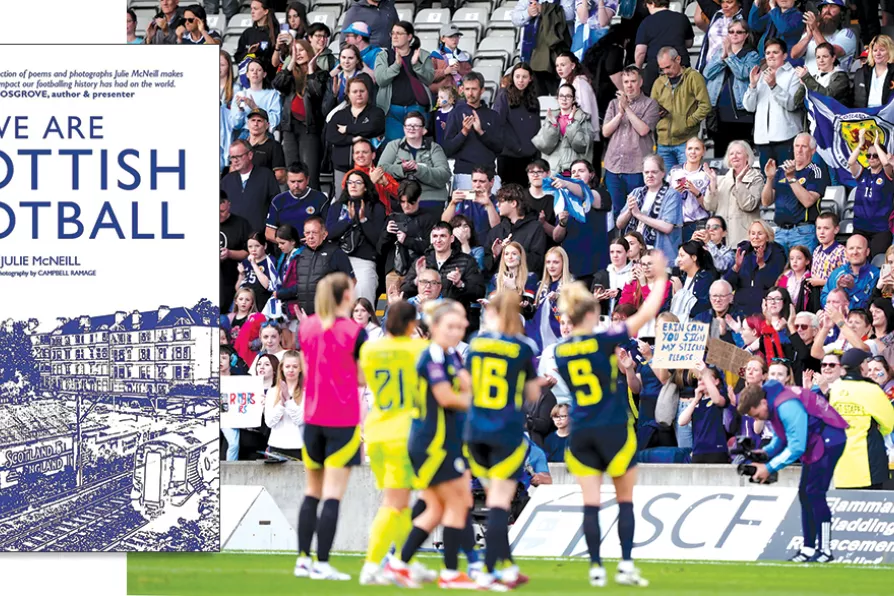GORDON PARSONS applauds a marvellous story of human ingenuity and youthful determination, well served by a large and talented company

 POETRY IN MOTION: The Scotland players thank the fans after the UEFA Women's Euro 2025 qualifying match against Serbia won 1:0 and played at Firhill Stadium in Glasgow on July 16 2024
POETRY IN MOTION: The Scotland players thank the fans after the UEFA Women's Euro 2025 qualifying match against Serbia won 1:0 and played at Firhill Stadium in Glasgow on July 16 2024
We Are Scottish Football
Julie McNeill, Luath, £7.99
THE publication of Julie McNeill’s new collection was perfectly timed to coincide with the Euros and future Women’s World Cup qualifiers. Its poetic focus may be on Scotland but its reach is global because football is global, as it has been since at least the 1950s as a male domain.
In capitalist terms women’s football is being sponsored because it has brought to the market a new audience of young girls and women with a growing fan base — mums, aunts, grannies, sisters, dads, uncles, boy and girl friends. It has already created a new infrastructure of players, coaches, trainers, physios, managers, scouts, pitches, referees and football strips being sold with the names of female football stars.

ANDY CROFT welcomes the publication of an anthology of recent poems published by the Morning Star, and hopes it becomes an annual event

RUTH AYLETT reviews two collections of outright political poetry
by Abeer Ameer










